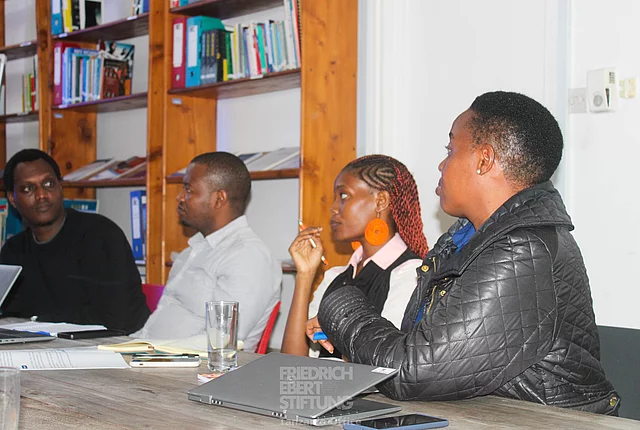- Event
Tanzania on a Vision for the Future: Shaping the Just Cities Towards 2050
As Tanzania's National Development Vision 2025 draws to a close, the nation is gearing up to draft its roadmap for the next 25 years. With the launch of the process to gather public views, the stage is set for a collective vision that will shape the destiny of the United Republic of Tanzania from 2025 to 2050.
From 2000 to 2025, the preceding vision laid down ambitious targets centered around high-quality livelihood, good governance and the rule of law, and a strong and competitive economy. The new national development vision will be a guiding compass for policy actions. When aligning policy and practice, turning attention to Tanzania’s rapid urbanization will be critical. This is how cities can become centers for innovation, productivity, and well-being.
A recent study by REPOA and FES sheds light on Tanzania's urbanization trajectory. With an annual urban population growth rate of 5.2%, Tanzania's urban centers are poised for exponential expansion, presenting a unique opportunity for economic advancement and job creation. Realizing this potential necessitates proactive planning and management grounded in the principles of a just city—dignity, diversity, equity, and democracy.
To put forward proposals for Tanzania’s urban future, fostering the principles of a just city, FES convened a stakeholders' workshop in Dar es Salaam on April 25th. Gathering over 15 experts from diverse fields, the workshop started with an evaluation of the implementation of the Tanzania Development Vision 2025, with particular attention given to target 4, which underscores the importance of housing, including the provision of affordable housing. The workshop continued with a comprehensive analysis of Tanzania's urbanization trends, processes, and practices. It concluded with envisioning the future, identifying priority areas of intervention, and crafting a transformative best-case scenario, outlining a vision for Tanzania's urban areas characterized by inclusivity, sustainability, and resilience. Key pillars of this vision include:
- Access to solid waste management: Garbage collection is done regularly and predictably through the efficient coordination of waste collectors under a public body. The guiding principles of urban development are the 3R: reduce, reuse, recycle). Waste separation at household-level and collection is incentivized and provides decent jobs. Organic waste is being collected and used as a resource for production. Plastic waste gets recycled. Efforts are made towards transforming cities into clean, safe and livable areas.
- Access to decent and affordable housing for all income groups: Improving livelihoods and development starts with access to a decent and climate-resilient shelter for everyone. Housing is seen as a system-built solution which offers dignity and the realization of housing as a fundamental right and as enshrined in the constitution. Affordable housing includes access to basic infrastructure, access to finance, access to land, access to affordable building materials and access to public services for every citizen. The National Housing Policy, the Human Settlements Development Policy, the Housing Finance Policy, and the Land Policy will be reviewed, adopted and implemented.
- Environmental sustainability and disaster preparedness: Resilient cities are livable and secure areas. Urban planning and development are environmentally-friendly, climate-sensitive, anticipatory and preventive. Decentralized decision-making and management allow for more efficient disaster response. Data and forecasting are available and open access. Legislation and regulations on environmental protection are harmonized and their enforcement is guaranteed by government institutions.
The outcomes of the workshop represent Tanzania's journey towards a just urban future in which Tanzania utilizes the advantages of urbanization to benefit all of its citizens by incorporating dignity, equity and diversity, democracy, accessibility and affordability as well as sustainability. These recommendations that were submitted to the NDV Commission will help to create a future where Tanzania's cities are people-centered places that promote social justice.
